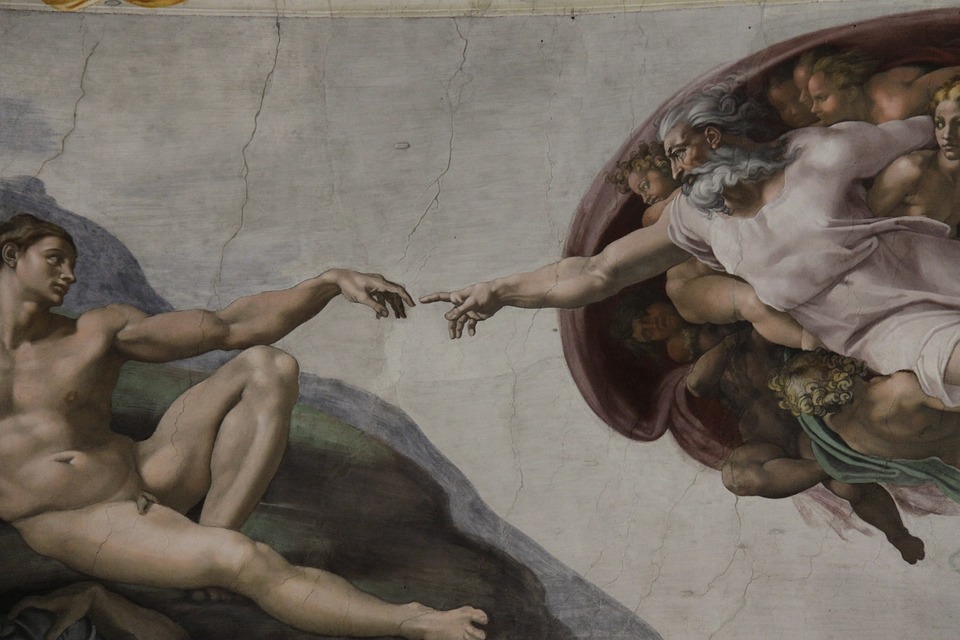 Submitted by Starlander on
Submitted by Starlander on

Nietzsche called it over a hundred years ago when he echoed previous philosopher’s concerns that ”God is dead”. This thought, which had emerged earlier in the 1850s, presaged the elevation by the Enlightenment of the worship of science above metaphysics, to the point that the latter would eventually become contemptible.
As it has in our times.
It is said by many that we have entered, are entering or at the very least sincerely aspire to be entering a post human age when the fundamental idea of what it is to be human is being wholly reinvented. The future human will be augmented with capacities that can as yet only be imagined by the common creature of today. We will, it is hoped, exist in a state that is beyond human. Our age-old shackles of mortality and imbecility will ever more be loosed. Chesterton wrote ”The future is a refuge from the fierce competition of our forefathers”. Any human may write their name large there, he said, untroubled by the terror of their insignificance compared to past glories. And so we shamble on in a state of eager hope towards our science fiction destination.
Perhaps, however, rather than the term posthuman the more appropriate descriptor of the age is Post Divinity.
It is not so much that it is problematic that we are chuffed about our impending transcendence of our fettered human state, because any chump knows that in reality such dreams are grandiose delusions, but rather that we so foolishly flatter ourselves on our state of being intelligently post divine. There is not a micron of space left for the possibility of error. The modern mind is in a perpetual state of hubris, a word that in its origin meant exactly the challenging of the gods..
God was not quite dead in the nineteenth century when Nietzsche fretted. For a hundred more years the vast majority of ordinary humans would believe that God had created the world and all its creatures including them. There was perhaps among relatively small numbers a grudging admiration, coupled with the frisson of shock, of the iconoclasts, especially in the world of the arts, who sought in their personal discontent to erase the remnants of any infusion of God in the world. On their death beds however very few of the admirers of dissidents did not turn their minds to at least the vague possibility of God. We were as yet children, merely experimenting with defiance.
Those were the days of lingering innocence. Nowadays God has been buried. And we have come to a new place where never before has the majority of a civilisation not only flirted with atheism but embraced it so radically that they passionately regard, and even revile, those of a metaphysical bent as suffering from abominable madness. The very idea of God is sneered.
The modern mind regards science as the last word on all matters; the modern is confident that human beings and all creatures around them have evolved from protoplasmic slime to the level of cognitive complexity and capacity that we now know, and thus humans will continue to evolve exponentially to the point where all that is unknown will have its mysteries peeled away. We rattle quite confidently on the doors of the unknowable, sending notice that we are on our way. We will unveil all things, we are sure, despite the fact that the more we discover the vaster becomes the unknown.
And, in discovering all that we now think we know for certain, instead of marvelling at ourselves we have relegated the human being to a tawdry envelope of enzymatic reactions. A mortal bag of puss and bones.
Rarely perhaps never before, and certainly not in such vast numbers, has a whole civilisation in any epoch been so united to lambast the existence of an eternal soul. Rarely if never before has a whole society shook its fists at the majesty of the sky and confidently tittered. Among all peoples, from those monstrously wrenching the hearts of sacrificial victims for Huitzilopochtli, to those placating less demanding gods with sweet offerings of flowers and herbs, there has always been a supranatural element to human existence. A divine reality behind all manifest things.
Not anymore. The desire in humans, since the beginning of time, towards seeking the metaphysical realities, has been replaced in our Post Divine age by the double pronged goad of Pleasure and Mammon. Petty ephemeral things which old age, and suffering, death and moth and rust will surely corrupt.